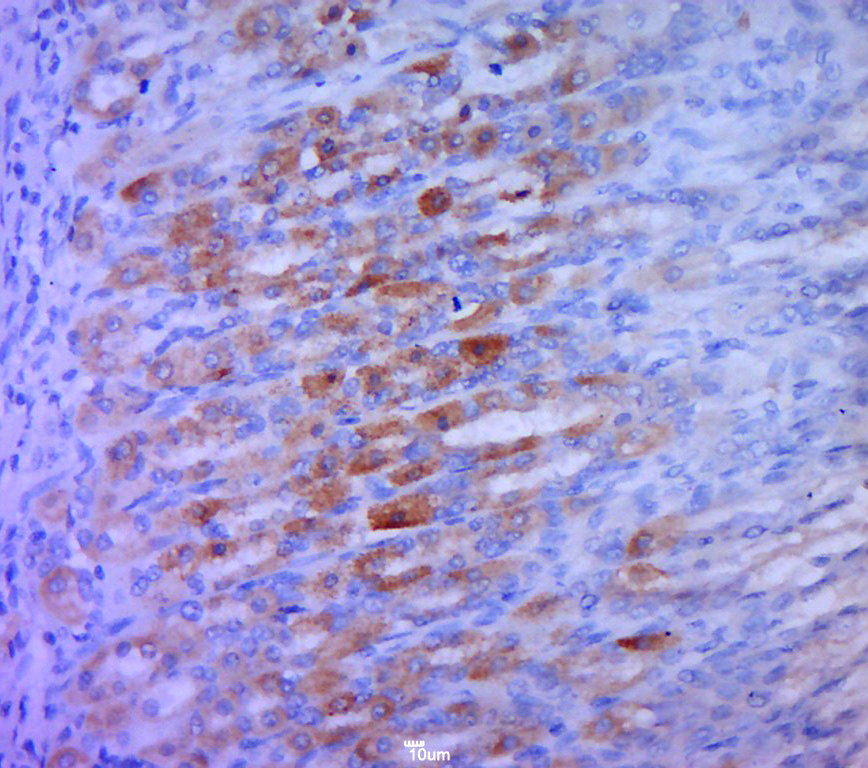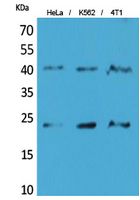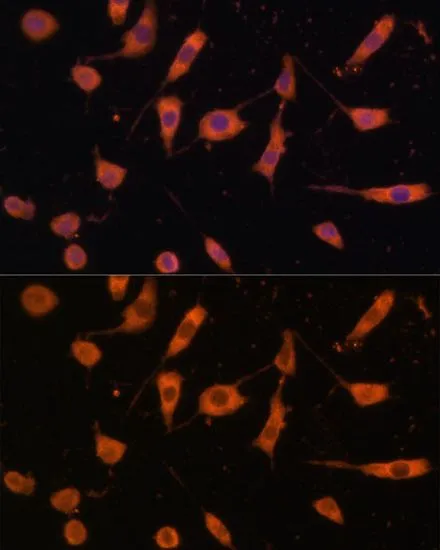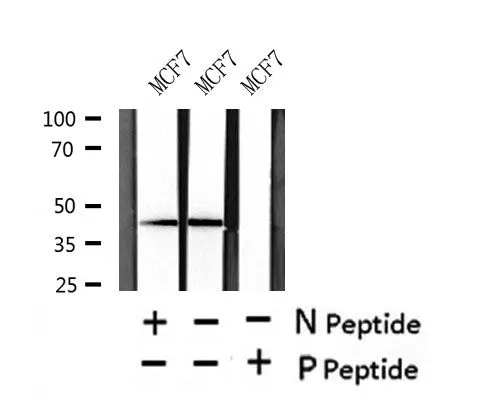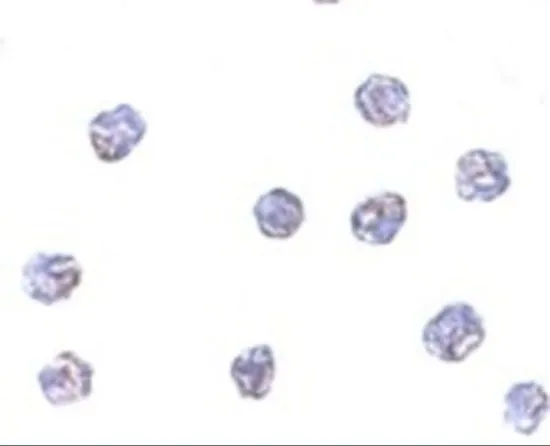
ICC/IF analysis of A-20 cells using GTX85266 STING antibody. Working concentration : 5 μg/ml
STING antibody
GTX85266
ApplicationsImmunoFluorescence, Western Blot, ELISA, ImmunoCytoChemistry
Product group Antibodies
ReactivityHuman, Mouse
TargetSTING1
Overview
- SupplierGeneTex
- Product NameSTING antibody
- Delivery Days Customer9
- Application Supplier NoteWB: 1 microg/mL. ICC/IF: 5 microg/mL. *Optimal dilutions/concentrations should be determined by the researcher.Not tested in other applications.
- ApplicationsImmunoFluorescence, Western Blot, ELISA, ImmunoCytoChemistry
- CertificationResearch Use Only
- ClonalityPolyclonal
- Concentration1 mg/ml
- ConjugateUnconjugated
- Gene ID340061
- Target nameSTING1
- Target descriptionstimulator of interferon response cGAMP interactor 1
- Target synonymsERIS, MITA, MPYS, NET23, SAVI, STING, STING-beta, TMEM173, hMITA, hSTING, stimulator of interferon genes protein, N-terminal methionine-proline-tyrosine-serine plasma membrane tetraspanner, endoplasmic reticulum IFN stimulator, endoplasmic reticulum interferon stimulator, mitochondrial mediator of IRF3 activation, stimulator of interferon protein, stimulator of interferon response cGAMP interactor-deltaC, stimulator of interferon response cGAMP interactor-deltaN, sting 1, transmembrane protein 173
- HostRabbit
- IsotypeIgG
- Protein IDQ86WV6
- Protein NameStimulator of interferon genes protein
- Scientific DescriptionMPYS is a recently identified plasma membrane tetraspanner that is associated with major histocompatibility complex class II (MHC-II) and mediates its transduction of apoptotic signals. It has also been found to be associated with VISA, a mitochondrial protein that acts as an adaptor in virus-triggered signaling. MPYS also interacts with IRF3 and recruits the kinase TBK1 to the VISA-associated complex, acting as a critical mediator of virus-triggered IRF3 activation and interferon (IFN) expression. It is thought that the binding of nucleic acid to the innate immune protein RIG-I causes complex formation between RIG-I, VISA, and MPYS. This complex then recruits TBK1 to phosphorylate IRF3 which then directly activates IFN transcription. At least three isoforms of MPYS are known to exist.
- ReactivityHuman, Mouse
- Storage Instruction-20°C or -80°C,2°C to 8°C
- UNSPSC12352203
References
- Yan M, Li Y, Luo Q, et al. Mitochondrial damage and activation of the cytosolic DNA sensor cGAS-STING pathway lead to cardiac pyroptosis and hypertrophy in diabetic cardiomyopathy mice. Cell Death Discov. 2022,8(1):258. doi: 10.1038/s41420-022-01046-wRead this paper

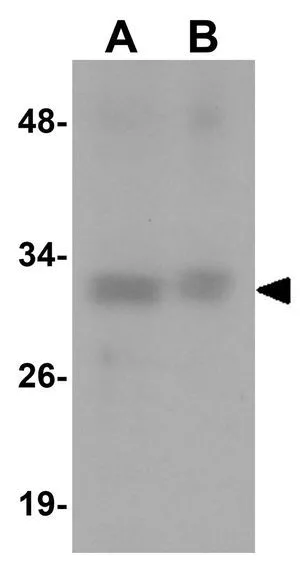
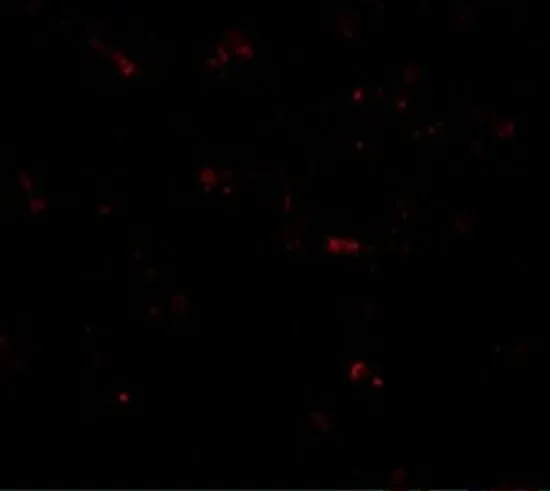
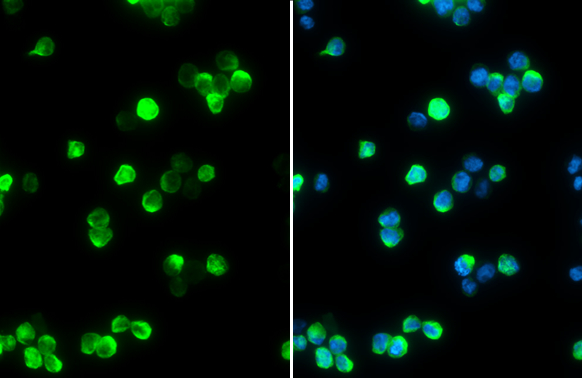
![IHC-P analysis of human pancreatic ductal adenocarcinoma (PDAC) tissue using GTX04484 STING antibody [MSVA-515M] HistoMAX?. Ductal adenocarcinoma with strong STING positivity of all tumor cells.](https://www.genetex.com/upload/website/prouct_img/normal/GTX04484/GTX04484_20230728_IHC-P_113_23072722_838.webp)
